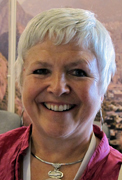Policy Bite : Priority setting.
A
policy necessity, or a privilege of the high income countries?
español
 with Amanda Howe, WONCA President Elect
with Amanda Howe, WONCA President Elect
In January, the CEO and I attended the Prince Mahindol Award Conference in Bangkok on your behalf. This is an ‘invitation only’ policy conference set up in the memory of Prince Mahindol of Songkla, who is recognized as ‘The Father of Modern Medicine and Public Health of Thailand’. I presented on a panel on ‘stakeholder dynamics’ – that is, how to get an effective voice and partnership working with key players in priority setting,
The conference definition of priority was …”
about how to allocate public resources between primary care centres and family doctors, and building hospitals and training specialists :-deciding which population groups ought to receive subsidised care, as well as:- defining a cost-effective package of services for a disease or condition, through locally developed clinical guidelines and quality standards.” This discussion was seen as a core mechanism for “..a
ccountability in decision making that national policy makers can use to steer effective and wise “investments” towards Universal Health Coverage”. [1]
The quality of presentations was strong, and the discussion rich. There were many of the same teams attending as we meet at WHO, so the opportunities to raise WONCA’s profile and to advocate justified the time and effort we put in. I also learned a lot, though felt the debate was somewhat skewed – because the focus in effect was often on which new technologies and drugs to purchase, rather than more population based interventions.
The conference noted that priorities will differ according to population profile, financial resources, and the healthcare technologies they can afford. It also noted that “
progressive realization of the right to health requires national and global health stakeholders to work synergistically to support priority-setting processes that ensure alignment, participation, transparency, empowerment, non-discrimination, and accountability.” ! Fine words, big words but the conclusions on the need to work together and use evidence based decisions were not news, and did not really reflect the challenges that were raised.
For WONCA I think the take home messages are:-
• Governments know they need to make decisions about what services and treatments need prioritising, but the costs of convening national advisory groups like the U.K’s National Institute for Clinical Evidence[2] may be prohibitive in lower income countries
• There is a risk that commercial entities will manage to engage in stakeholder consultation more than busy clinicians (especially those of us outside major centres), so biasing decisions towards their products
• The evidence base from primary care research is urgent for this need – we need to know the research and be able to add to evidence and get a balanced view
• So, being engaged in the national debates around priority setting and having academic input into this is a very important role for member organisations and our regional Presidents.
1. Prince Mahindol Institute for Population and Social Research. Priority Setting for Universal Health Coverage: Report on the 2016 Prince Mahindol Award Conference. 2016: Bangkok: Mahindol University.
2.
https://www.nice.org.uk